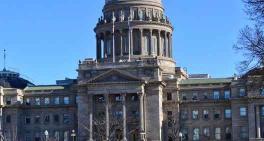Court upholds car rental tax imposed in Maricopa County
Featured Articles
The Arizona Supreme Court on Monday upheld a car rental tax surcharge that’s imposed in Maricopa County to pay for building a professional football stadium and other sports and recreational facilities, marking the second time an appeals court has ruled the tax is legal.
Car rental companies had challenged the surcharge on the grounds that it violated a section of the Arizona Constitution that requires revenues relating to the operation of vehicles to be spent on public highways.
A lower-court judge had ruled in favor of the rental companies four years, saying the surcharge violated the constitutional provision and ordering a refund of the tax estimated at about $150 million to the companies.
But the Arizona Court of Appeals reversed the decision last spring. The Arizona Supreme Court on Monday echoed the Court of Appeals’ ruling.
The surcharge partially funds the Arizona Sports and Tourism Authority, an agency that uses the money to help pay off bonds for the stadium in Glendale where the Arizona Cardinals play, along with baseball spring training venues and youth sports facilities. The rest of the authority’s revenue comes from a hotel bed tax and payments for facilities usage.
The surcharge is charged on car rental companies, but the costs are passed along to customers.
Attorney Shawn Aiken, who represented Saban Rent-A-Car Inc. in the case, said in a statement that the challengers will evaluate in the coming weeks whether to ask the U.S. Supreme Court to consider the case.
Related listings
-
Ex-West Virginia Supreme Court justice set for sentencing
Featured Articles 02/13/2019A former West Virginia Supreme Court justice who had a $32,000 blue suede couch in his office and was at the center of an impeachment scandal is due in federal court for sentencing for using his job for his own benefit.Allen Loughry is scheduled to b...
-
State high court to weigh appeal based on impulsivity issue
Featured Articles 02/07/2019The Arizona Supreme Court will consider if judges can allow evidence on whether defendants have brain damage making it more than likely a crime was committed impulsively rather than with premeditation.The court agreed Tuesday to consider the appeal o...
-
Weather, shutdown blamed for immigration courts backlog
Featured Articles 01/25/2019U.S. immigration officials blame the government shutdown and the extreme winter weather for confusion about immigration court hearings.In an emailed statement, the part of the Justice Department overseeing immigration courts said some immigrants with...

Any contracts or any transactions can go awry at any time
We know your business means a lot to you and want to understand all the aspects of your business so that we can help you in the best ways possible. We don’t discriminate depending on the size of your company. Our mission statement is to represent all business owners and entrepreneurs by navigating them through the rough waters of business litigation and guiding them to success.
We are attorneys who want to make sure we understand your business objectives and goals before we start providing you with legal counsel individualized to your business. We know what it means to be dedicated to your business. After all, we are a business as well. And just like you, we want to provide the best service we can to our clients.
Any contracts or any transactions can go awry at any time. Sometimes, making important business decisions without legal help from business attorneys could cost you your business.We don’t want you or your business to be misconstrued by anyone. Our attorneys make sure that we communicate with you often to make sure we are giving you the legal guidance you need at all times. We make sure we are responsive in a timely-manner with every single one of our clients to help them identify risks and prevent legal battles before they arise.




